Competitions
One of the Student Activities Conference’s (SAC) highlights is its array of unique, interactive and challenging competitions. Student attendees are expected to participate in either one or two competitions. Scroll down for the descriptions and rules of all the competitions we have to offer at SAC 2020!
Check out the changes we’ve made to competition mechanics.
Competition rules are available below.
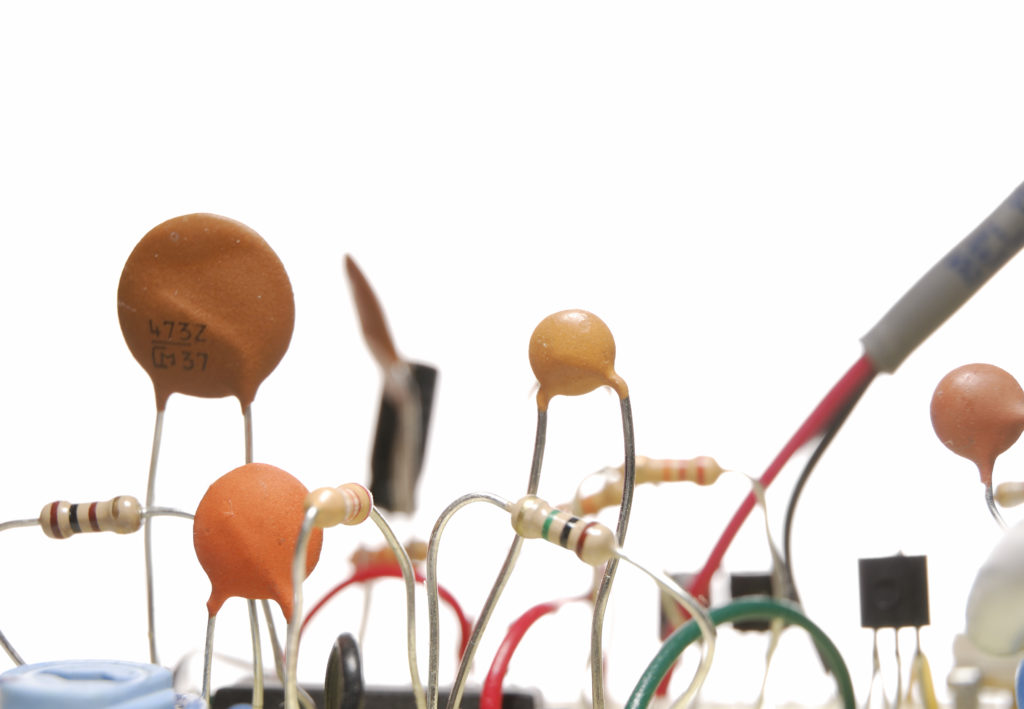
Brown Bag I Competition
This event tasks participants with completing a series of circuits challenges. Teams of one to four will work in a circuits lab environment using nothing but their electronics knowledge (and provided datasheets). Some tasks might include combining resistors to get a specific total resistance, building logic gates out of transistors, and implementing digital counters. A general list of topics covered will be provided by March 1st.
All equipment for this competition will be provided, and your challenge-specific components will arrive in a sealed brown paper bag. With a set time-limit, it will be important to prioritize questions, and maximize your points per minute.
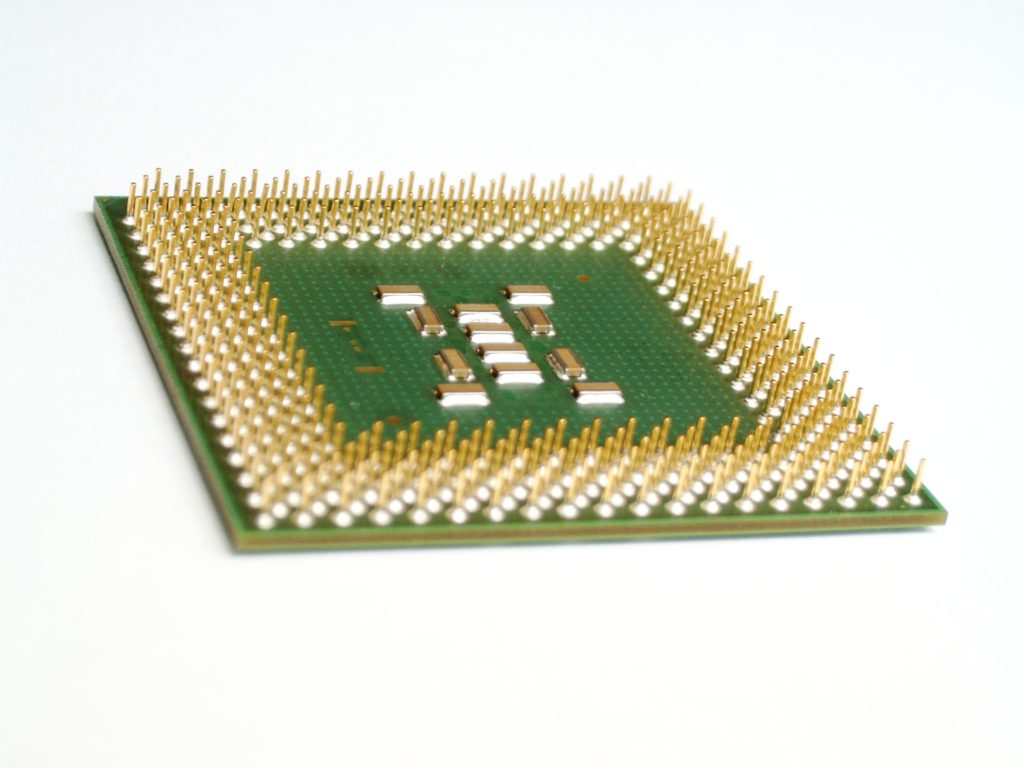
Brown Bag II Competition
While the Brown Bag I competition focuses on circuits-based challenges, it’s sibling adds a slight twist: the Arduino. This year, the Brown Bag II challenge will require students solve provided challenges with an Arduino board, in addition to using creating circuits on a breadboard. Student teams of one to four will complete challenges like playing music, interacting with various sensors, and even transmitting digital data.
Arduino boards and computers with the Arduino IDE will be provided, in addition to all other equipment you may need for this competition. Just like Brown Bag I, the Brown Bag II competition will be timed.

Ethics Competition
Engineers impact every aspect of our lives, and organizations like the IEEE use codes of ethics to set an ideal standard for the practicing engineer. The Ethics Competition encourages student teams to understand and apply the IEEE code of ethics to a contemporary problem in science or engineering. Groups of one to four students will be given a set amount of time to research the provided topic, and then must present their application of the code of ethics to a panel of judges. Presentations will be timed, and will judge teams based on presentation skills, understanding of the topic, and application of the IEEE code of ethics.
Computers will be provided for both the research and presentation phases of this competition.
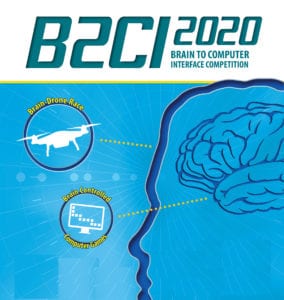
B2CI Drone Challenge
Perhaps one of the most exciting research topics right now is the Brain to Computer Interface (BCI). The B2CI Drone Challenge, one of two new challenges at the SAC, challenges students to control a drone with their mind. Teams of one to five students will create a system that processes live EEG data and interfaces with a commercial or custom drone. The drone will be required to lift off the ground, and fly along a basic track.
This new challenge covers topics like electroencephalogram (EEG) data, signals processing, and various programming techniques. To succeed, be sure to give your assigned pilot plenty of time to practice.
Currently, no materials will be provided for this challenge. Students are encouraged to reach out to professors at their university for access to the proper technology, or to build their own.
Website: site.ieee.org/baltimore/b2ci
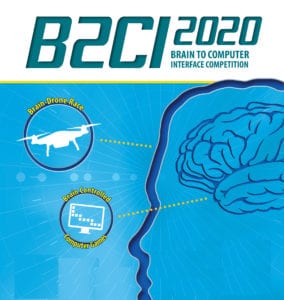
B2CI Video Game Challenge
Brain to Computer Interfaces are quickly gathering interest in both research and industry circles, with near-limitless applications. How about a fun one? The B2CI Video Game Challenge is the second of two new events coming to the SAC this April. Teams participating in this challenge will use signals processing, machine learning, and programming skills to create a custom video game where the controller is the brain.
Players will wear a commercial or custom-built EEG headset that will provide brainwave data in real time for processing and input into a video game. Teams are encouraged to be creative with the video game design, and will be judged on creativity of the game, functionality of the system, and understanding of the B2CI system.
Currently, no materials will be provided for this challenge. Students are encouraged to reach out to professors at their university for access to the proper technology, or to build their own.
Website: site.ieee.org/baltimore/b2ci
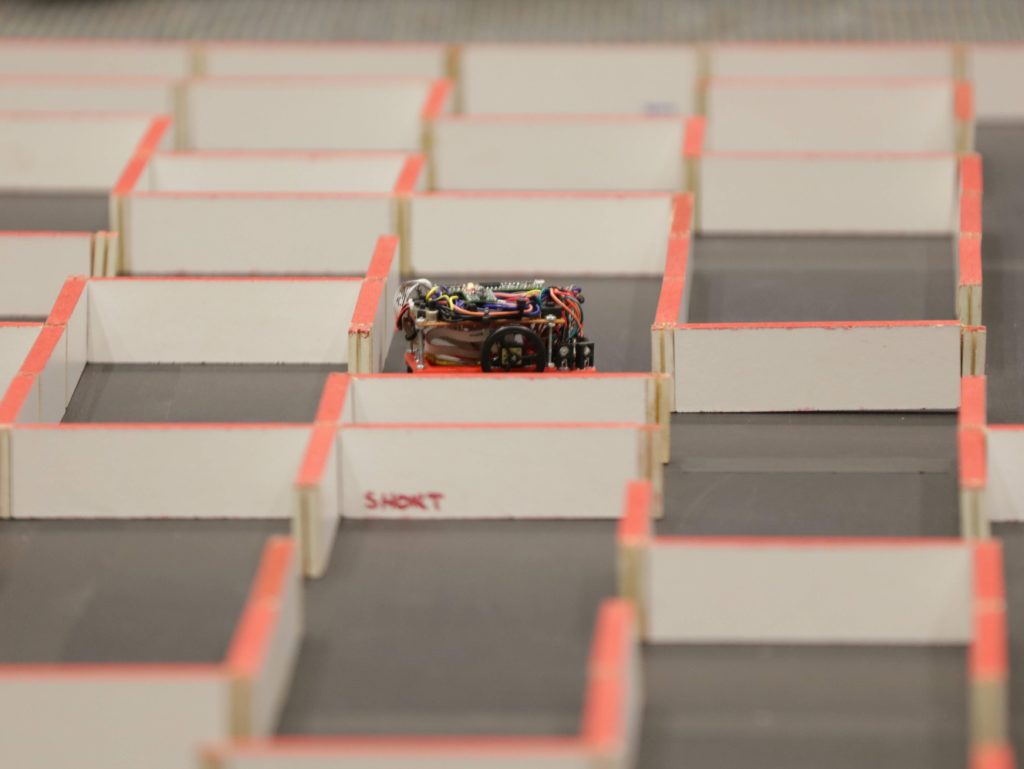
Micro-Mouse Competition
It’s back, and better than ever! Will your team take home the trophy for this year’s annual Micro-Mouse Competition? Student teams will design, assemble, and program a fully autonomous robot capable of traversing a maze. The “mouse” robot must use maze solving programs and unique navigational techniques to move from a corner of the maze, to it’s center. Sound easy? To win, you’re robot will have to complete the maze in the shortest possible time.
Practice mazes will be provided both Friday night and Saturday. Basic repair equipment like soldering irons and wires will be available, but be sure to bring extras of the important stuff!
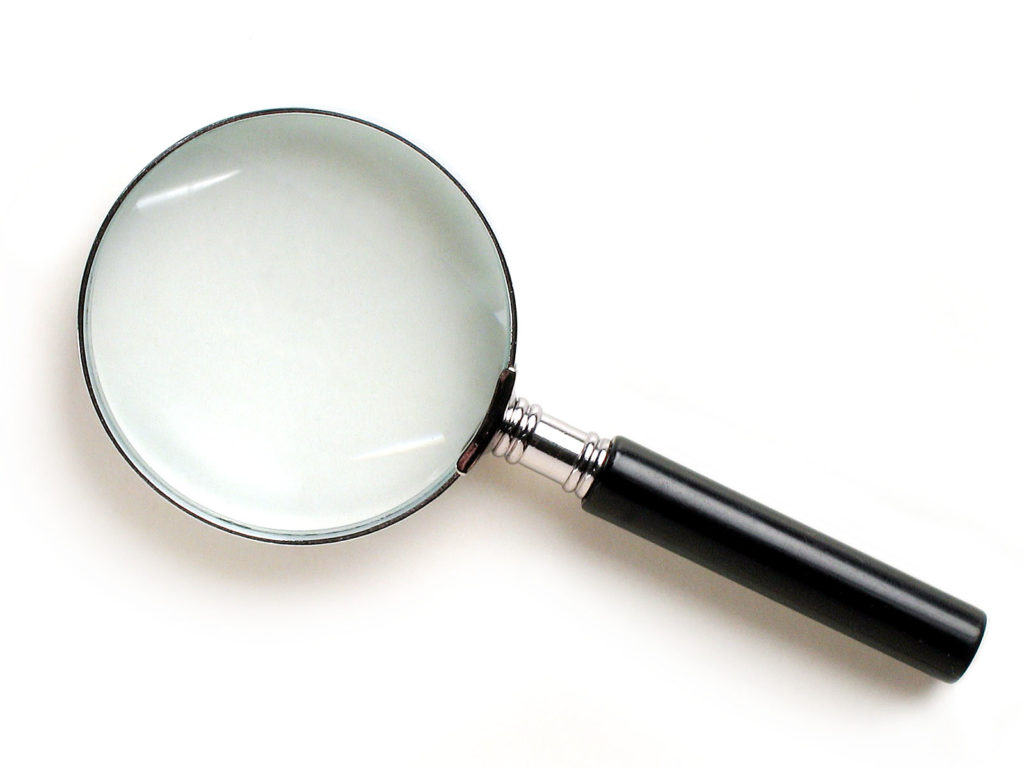
PicoConference Paper Presentation
Writing, preparing and presenting technical material are critical to an engineer’s success, and best done with plenty of practice. The PicoConference Paper Presentation allows student entries to get that practice by writing, submitting, and ultimately presenting a technical paper, just as they might do at a regular IEEE conference!
Students, both graduate and undergraduate, are encouraged to submit their papers for review, and to work with their advisors to prepare a presentation. After the SAC, a selection of presented papers will be published in an IEEE journal, a great opportunity for any student. The competition itself is based around judging the engineer’s communication skills.
Call for Papers: click here
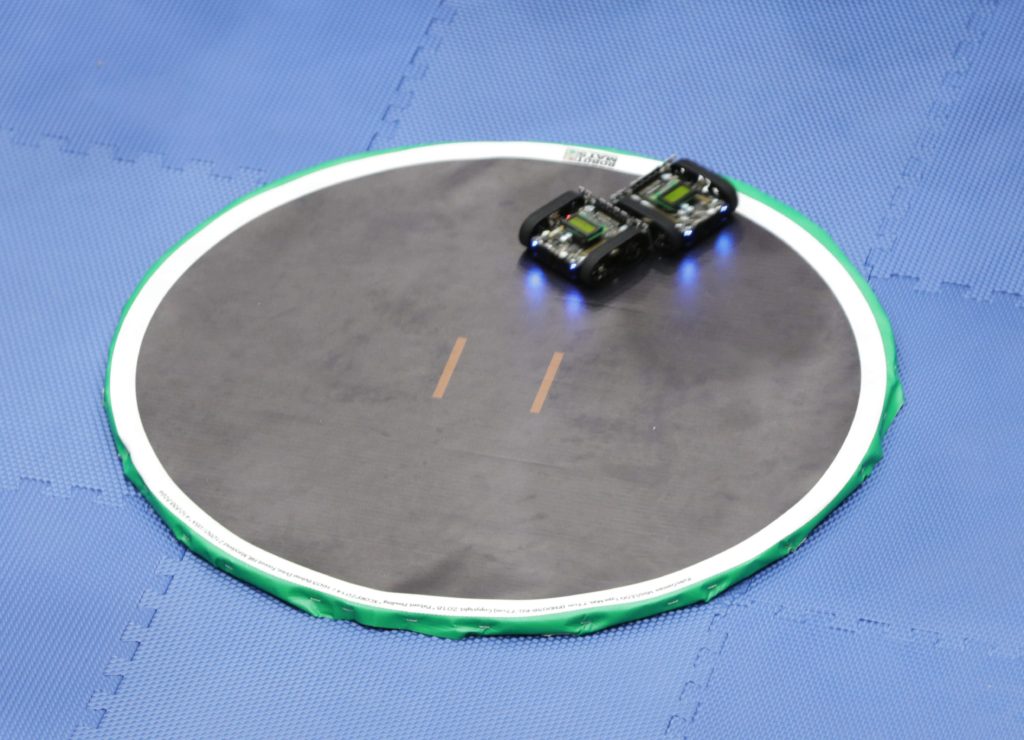
Sumo Bot Challenge
Looking to compete directly against another team? The Sumo Bot Challenge will pit two student teams against each other in an intense battle of Sumo wrestling – with robots!
There are two categories to this exciting competition: Kit and Custom. Teams will either program the Pololu Zumo robot (Kit category) or build and program a custom robot (Custom category) to autonomously target and push the enemy robot out of the arena. No hardware modifications may be made to the Pololu Zumo robot for those competing in the Kit category. Robots registered for the Custom category shall not utilize destructive or hazardous techniques.
Teams are expected to provide their own hardware for this competition. Practice arenas will be available both Friday night and Saturday.
Pololu Zumo:
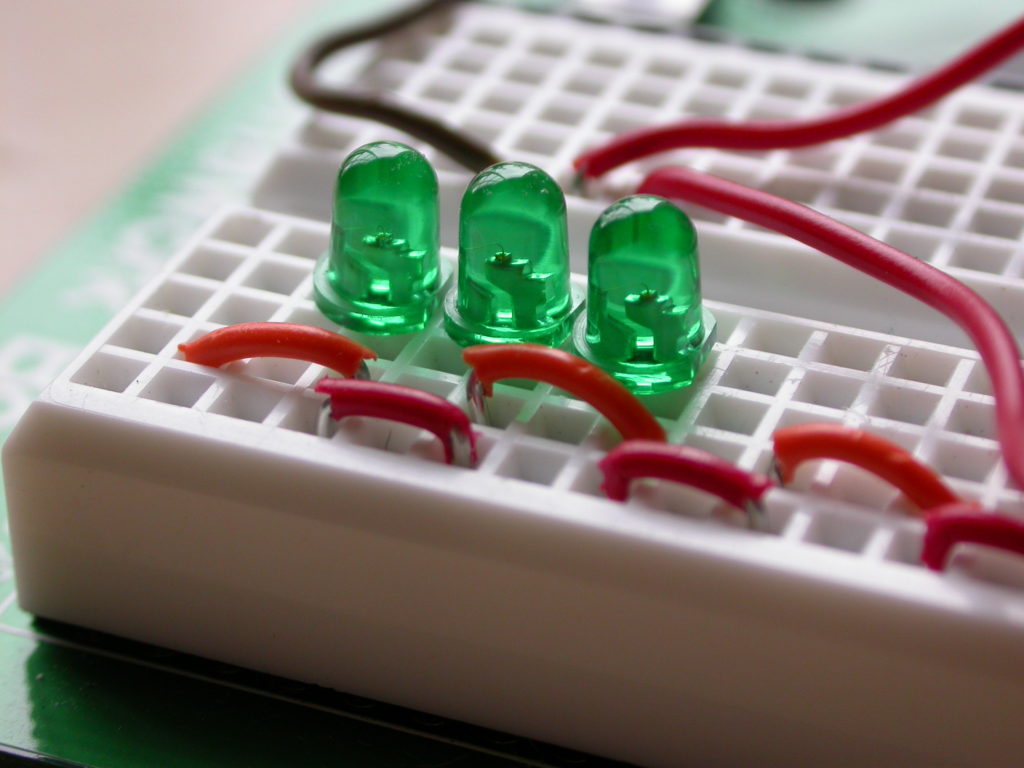
Project Showcase
Sometimes the work you’ve done, either inside or outside of class, just needs to be shown! The Project Showcase provides the opportunity for undergraduate students to present, demonstrate, and explain their projects/designs to all attendees of the conference. A panel of judges will review your project, awarding points based upon presentation skills, engineering quality, and technical understanding. Votes cast by your peers will also weigh in to your final score.
Entries to the Project Showcase will be provided with an outlet, a table, and may request additional amenities. Projects must pertain to electrical engineering or a similar field.
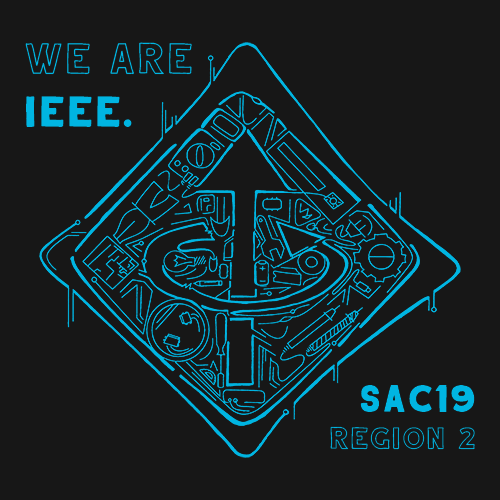
T-Shirt Design Challenge
We are looking for creative and artistic students to design our official t-shirt for this year’s Student Activities Conference. Submissions must include the phrase “SAC20” or “SAC2020”. Your reward for submitting a design? Every student attending the conference will get a shirt with your design. For more information, and other rules, check out the guidelines below!
Last year’s design is shown to the right.
Due Date: Submissions must be received at the link below by the end of Monday, Feb. 24.
